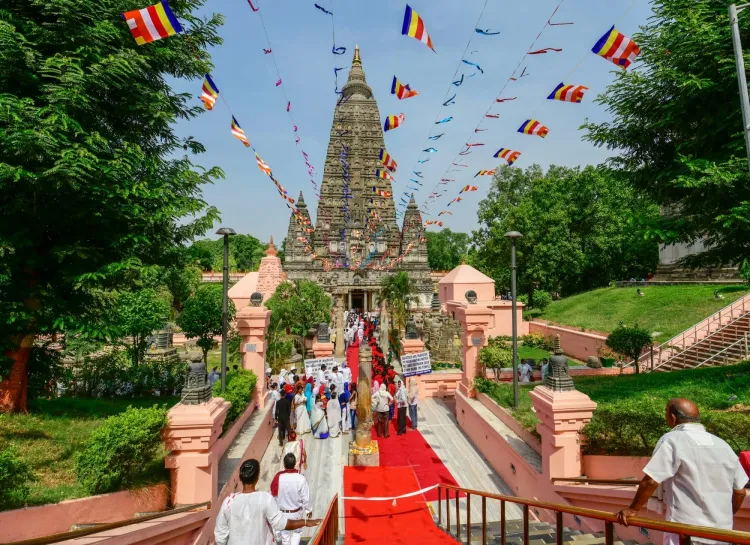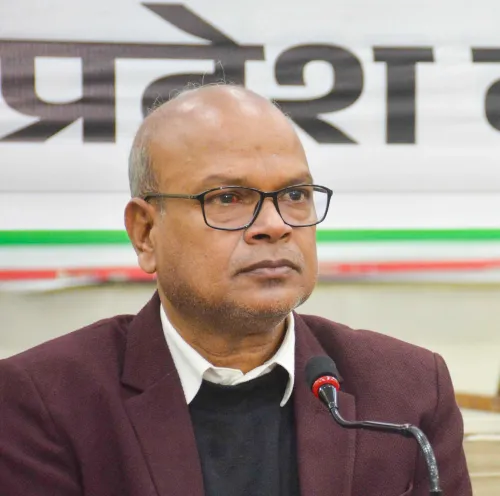Why Did the Supreme Court Reject the Petition for Buddhists' Control Over Mahabodhi Temple?

Synopsis
Key Takeaways
- The Supreme Court has dismissed the plea for exclusive Buddhist management of the Mahabodhi Temple.
- The Bodh Gaya Temple Act, 1949 is a central issue in this debate.
- Concerns about the management and preservation of the Bodhi Tree have been voiced.
- The temple is a UNESCO World Heritage Site, underscoring its global significance.
- Next steps involve petitioners seeking legal recourse at the Patna High Court.
New Delhi, June 30 (NationPress) The Supreme Court declined to consider a petition requesting the 'liberation' of the revered Mahabodhi Temple in Bihar, advocating for the exclusive management and oversight to be granted to Buddhists.
A panel comprised of Justices M.M. Sundresh and K. Vinod Chandran opted not to accept the writ petition submitted directly to the apex court, which contested the legitimacy of the Bodh Gaya Temple Act, 1949. They advised the petitioner to seek resolution at the Patna High Court instead.
"We are not inclined to entertain the petition under Article 32 of the Constitution of India. Nevertheless, the petitioner is permitted to approach the (Patna) High Court," stated the Justice Sundresh-led Bench.
The petition asserted that the sacred Bodhi Tree, where Lord Buddha achieved enlightenment, is at a 'risk of deterioration' due to the alleged poor management by the Bodh Gaya Temple Management Committee (BTMC).
Claiming a breach of fundamental rights to practice religion and manage religious institutions, as protected by the Constitution, the plea, represented by advocate Jaydip Pati, sought that the management and oversight of the Mahabodhi Temple be exclusively assigned to Buddhists.
According to the Bodh Gaya Temple Act, 1949, the oversight of the temple is under the BTMC, which comprises a majority of Hindus.
"The current scenario, where the most sacred Buddhist shrine in India and globally (designated as a World Heritage Site since 2002) is under the jurisdiction of non-Buddhists, violates the fundamental rights enshrined in Articles 25 and 26 of the Constitution," the petition emphasized.
The petition further requested orders to prevent non-Buddhists from engaging in non-Buddhist religious practices and rituals at the Mahabodhi Temple.
Historically, it is believed that Emperor Ashoka erected a temple near the Bodhi tree and consecrated a statue of Lord Buddha around the 3rd century BC. Recently, Buddhist monks affiliated with the All India Buddhist Forum demonstrated in Bodh Gaya, Patna, demanding complete autonomy for the Buddhist community to oversee the Mahabodhi Temple.










